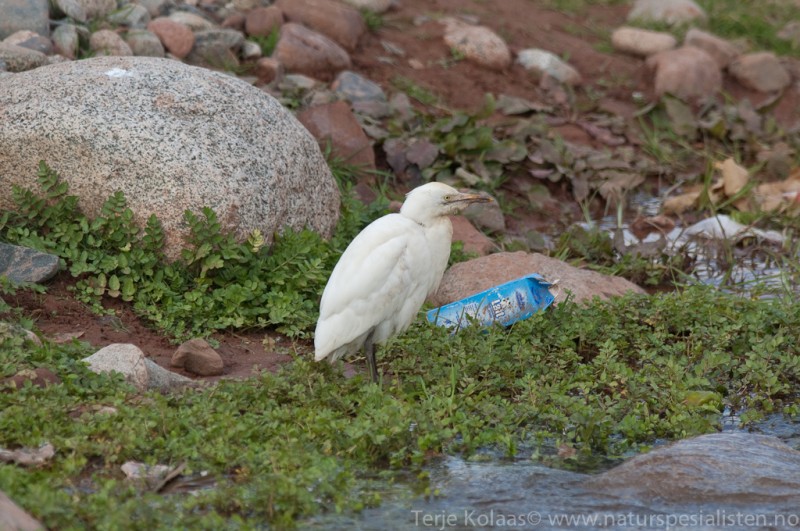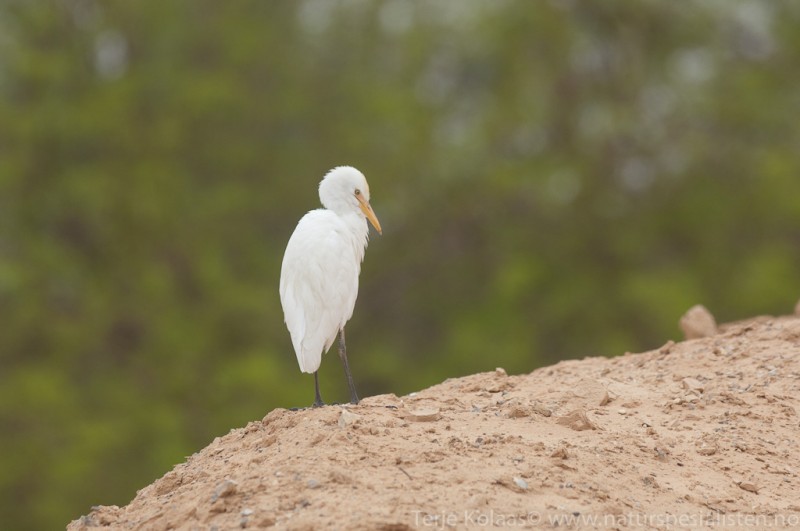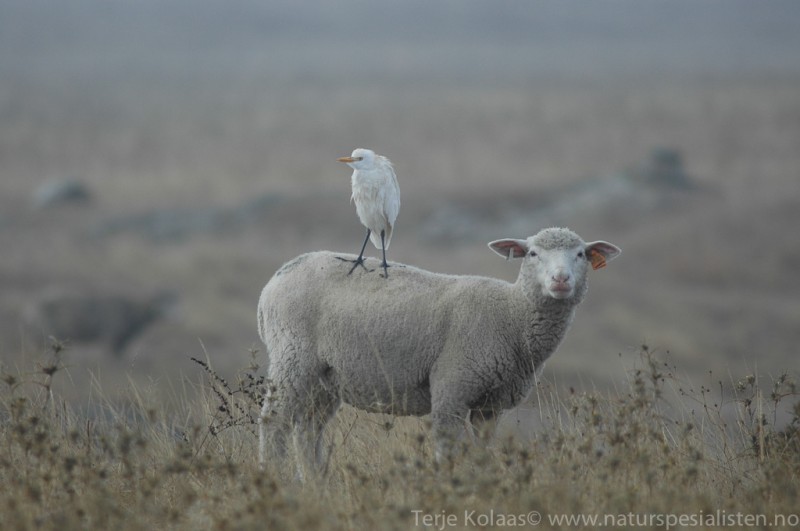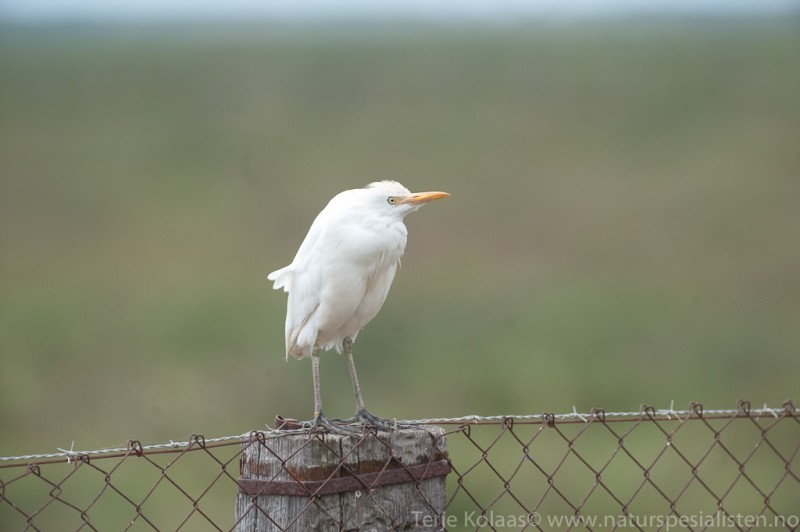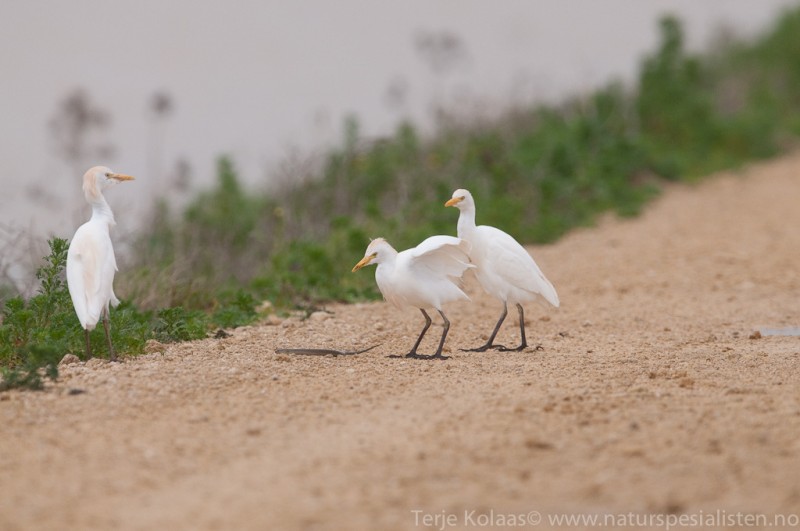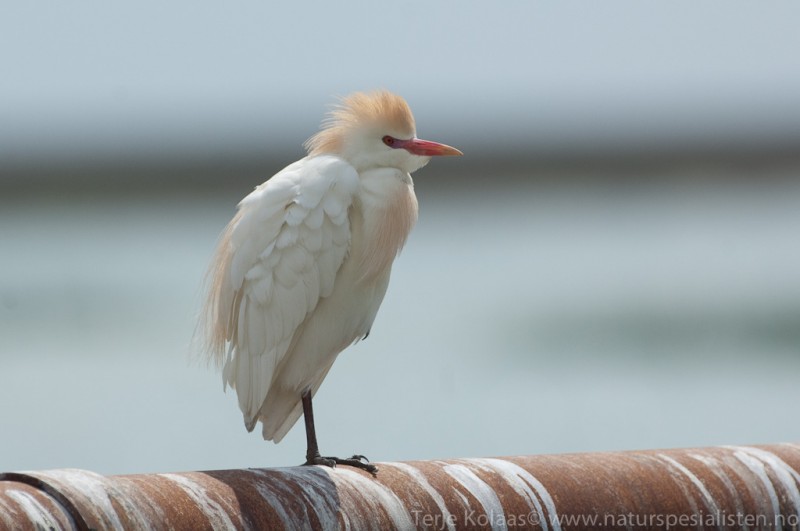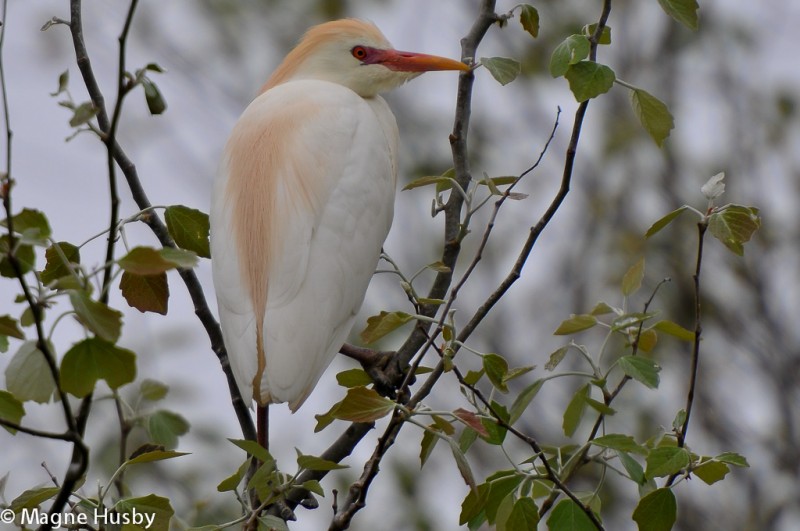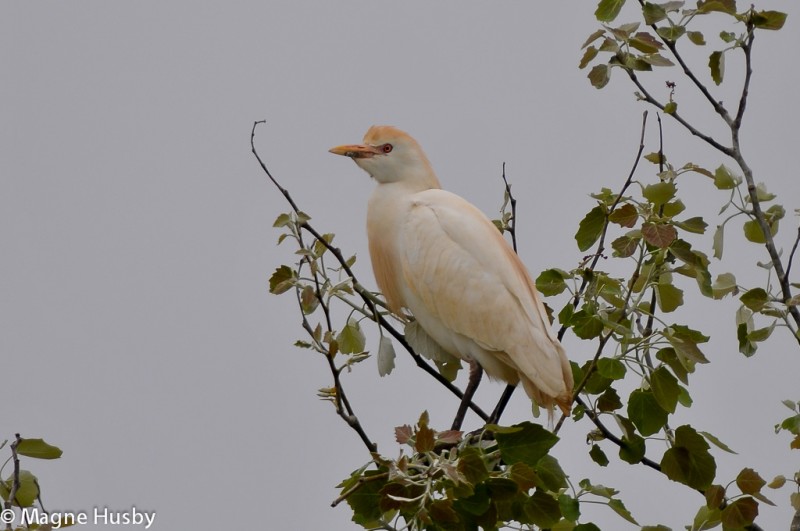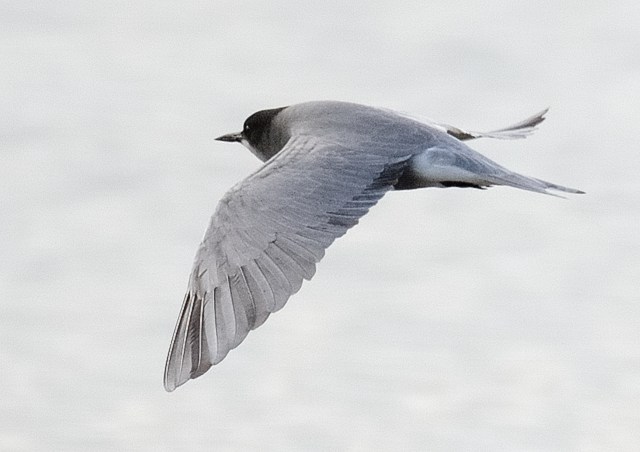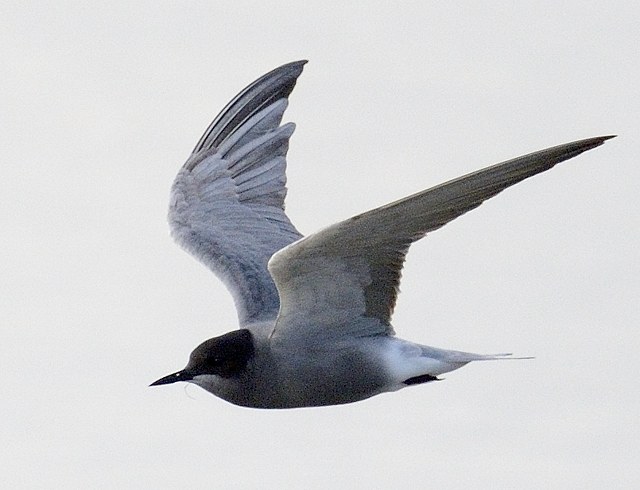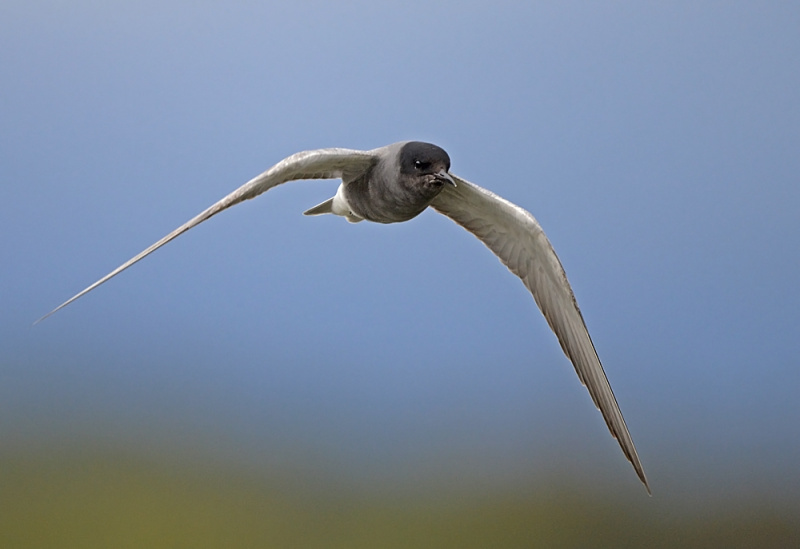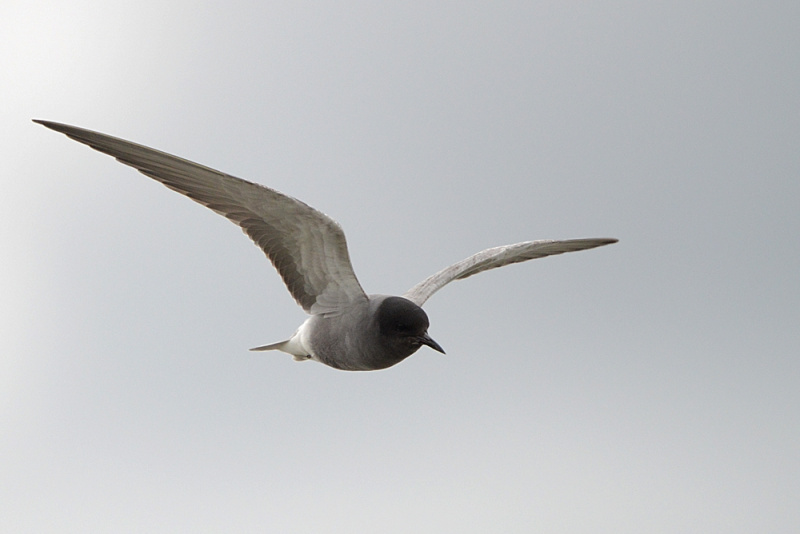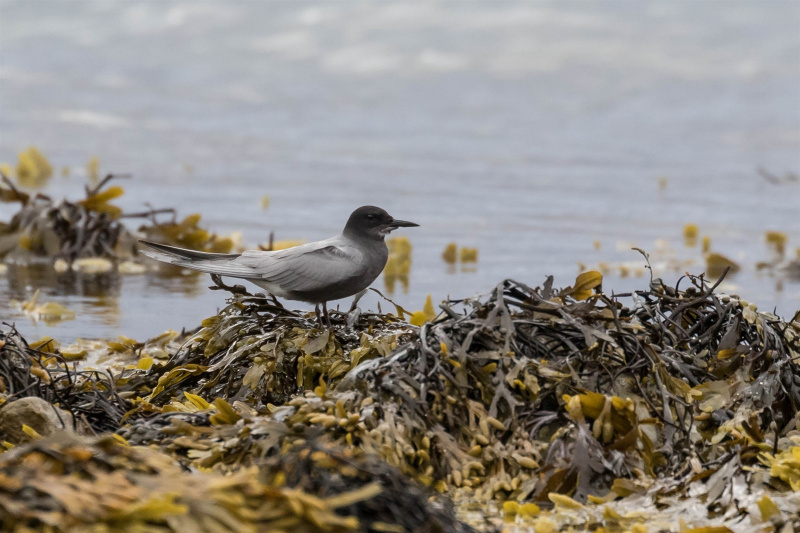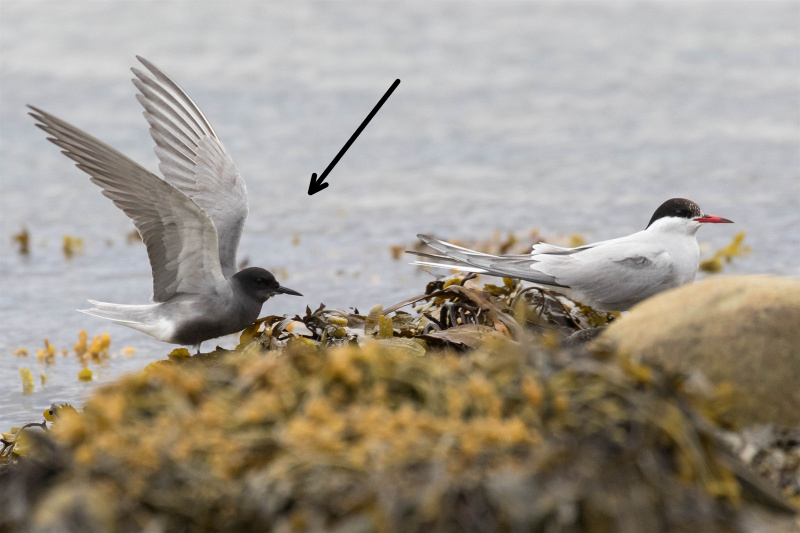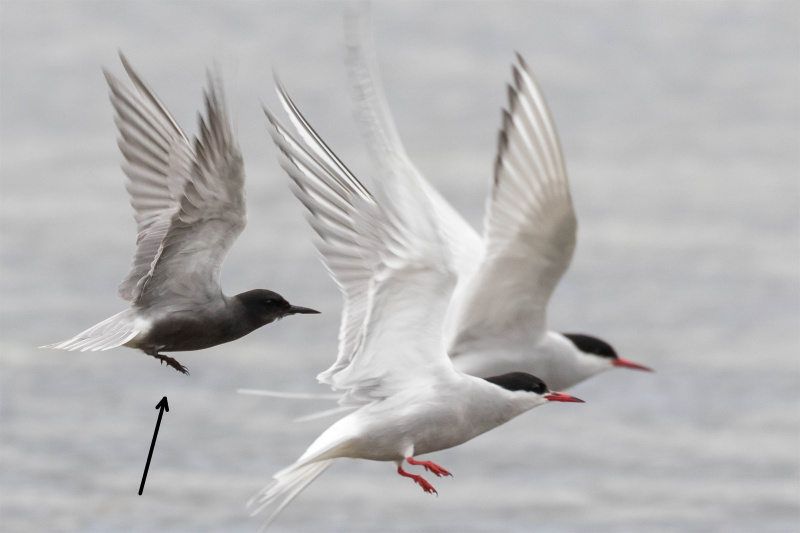Cattle Egret (Bubulcus ibis)
Black Tern (Chlidonias niger)
Small, stocky, white heron with short bill and neck. Heavy jowl. Plumage all white, except in breeding birds which show varying amount of buff on back, crown and chest. Bill usually yellow, but turns orange-red in breeding birds, and is dark in immatures. Legs pale greyish green, but darker in young birds. May be confused with both Little Egret and Squacco Heron in flight. Differs from Little Egret in leg color and shorter, thicker neck and bill. Told from Squacco Heron by unstreaked body/head, and smaller bill. Generally leaves a less elegant impression than other small herons.
Sound:Usually silent away from breeding ground. In the colonies a chorus of various coarse sounds can be heard. Most distinct is a disyllabic "rick-rack". Other sounds includes short, guttural utterings, or drawn, harsh shrieks.
Contact calls:
Distribution:
Xeno-canto: map
Ecology:Birdlife ecology
Links:
Observation.org Latest observations
Image search Flickr NB! May give other species
CCUnmistakable in breeding plumage, but otherwise easily confused with other marsh terns. Breeding plumage with black head and belly, but pale underwing and grey rump. When in immature and winter plumage it differs from Common and Arctic tern by smaller size and short, moderately forked tail, and from other marsh terns by slimmer body and wings (compared to White-winged tern), and relatively long, thin bill. Both immature and adult winter show dark front edge of wing, and characteristic dark shoulder patch at wing base. Back is dark in immature birds. Grey rump in all plumages. Flight usually different from Sterna-terns, with erratic dives for no apparent reason, and "aimless" change of direction. Note that when foraging over saltwater, flight becomes more Sterna-like.
Sound:Moderately vocal. Flight call a more or less clear "kleck, or a disyllabic "klee-ake" with accented first syllable. Sometimes slightly rolling "klirr-eke", but never as much as in White-winged Tern. Also a slightly harsher "kreek", but not as raspy as in Whiskered Tern.
Flight call:
Distribution:
Wikipedia: map (se also Xeno-canto below)
Ecology:Birdlife ecology
Links:
Observation.org Latest observations
Image search Flickr NB! May give other species
CC
 English
English Albanian
Albanian
 Armenian
Armenian
 Bulgarian
Bulgarian
 Catalan
Catalan
 Croatian
Croatian
 Czech
Czech
 Danish
Danish
 Dutch
Dutch
 Finnish
Finnish
 French
French
 Georgian
Georgian
 German
German
 Greek
Greek
 Hungarian
Hungarian
 Italian
Italian
 Latvian
Latvian
 Lithuanian
Lithuanian
 Macedonian
Macedonian
 Norwegian
Norwegian
 Polish
Polish
 Portuguese
Portuguese
 Romanian
Romanian
 Russian
Russian
 Sami : Lule sami
Sami : Lule sami
 Sami : North sami
Sami : North sami
 Sami : South sami
Sami : South sami
 Scientific names
Scientific names
 Serbian
Serbian
 Spanish
Spanish
 Swedish
Swedish
 Ukrainian
Ukrainian


